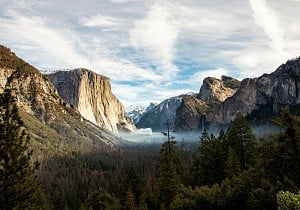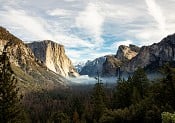
Anybody used an Olympus e-m1 markiii
And how would you rate it against a Panasonic G9?
I’m looking for a MFT stills camera that will get me good Astro images, and it has to be better than my Panasonic GH6.
Not going full-frame as I have a lot of MFT glass.
why do you think the oly would be any better for astro?
do you have a startracking mount? i'm considering the staradventurer 2i..
> why do you think the oly would be any better for astro?
I don't, which is why I'm after first hand advice.
I've not tried an Oly body, but as a tangent to your question, the G9 is not BAD for astro as an MFT sensor, but there is an inherent limitation that comes with small sensors and that's noise (you simply don't get as many photons per photosite). Which means you have to stack much deeper than you would with an FF sensor (for a given f-number lens). The 'bad' thing about the G9 is fixed pattern noise, but that's manageable via dark frames. So assuming you do your calibration correctly, I can't imaging any other MFT sensor being significantly better than the G9.
So if you're trying to get astro images with your 400mm lens, you're probably going to be stacking 1minute exposures (assume bad light pollution, otherwise longer) which then means you need a pretty decent tracker/mount and good polar alignment. That's likely to be your limiting factor rather than the details of your MFT sensor. I've has decent astro image from both G9 and FF 6d - you're just fighting different battles with different compromises.
Of course it also depends on what you mean by "astro". If you're only interested in untracked wide angle Milky Way shots then the previous paragraph is less relevant.
Pretty niche question for UKC no? Tried any photography forums? https://www.dpreview.com/forums/thread/4520252
The Olympus E-M1 Mk3 has a better sensor for deep sky astro than the Panasonic G9 as the Oly has less dark current noise.
https://www.optyczne.pl/451.7-Test_aparatu-Olympus_OM-D_E-M1_Mark_III_Szumy...
https://www.optyczne.pl/390.7-Test_aparatu-Panasonic_Lumix_DC-G9_Szumy_i_ja...
Go about 2/3 down the page of the links to the 'RAW' sections and compare the histograms. At similar ISO values, the Oly's histograms have a tighter spread and are more central compared to the Panasonic.
> Pretty niche question for UKC no?
Niche?
Have you seen many climbing discussions on here?
> Of course it also depends on what you mean by "astro". If you're only interested in untracked wide angle Milky Way shots then the previous paragraph is less relevant.
I'd like to experiment with:
Single exposures
Stacked exposures
Tracked single exposures
Tracked stack exposures
I'd also like to get some sort of tracking device. Just a thought, would my money be more wisely spent on a tracking device and learning how to do Dark Frames better?
> I'd also like to get some sort of tracking device. Just a thought, would my money be more wisely spent on a tracking device and learning how to do Dark Frames better?
If you want to do anything other than wide-angle-landscapes-with-Milky-Way-background pictures then absolutely yes. Not just dark frames, but the whole 'calibration' process (there's little point stacking uncalibrated images).
What is the calibration process please?
And is Move Shoot Move a good Tracker to use on a photographer’s tripod?
cheers
I've not done the maths for the G9 and it's MFT friends, but in anything other than summer in a good dark sky site (does not exist in the UK) your noise problem is likely to be dominated by photon noise not thermal noise, so the difference in the sensor performance shown above is largely irrelevant (on the assumption that you manage your fixed pattern noise properly).
> What is the calibration process please?
Big topic. Too big for now.
> And is Move Shoot Move a good Tracker to use on a photographer’s tripod?
No idea really. I built my own many years ago.
> And is Move Shoot Move a good Tracker to use on a photographer’s tripod?
seems ok for wide angle shots.. https://www.space.com/moveshootmove-star-tracker-review
for the price of an em1mk3 body you could get a cheapo/used apsc dslr, a 80mm refractor tube, the staradverturer 2i mount, and a selection of cheap fast lenses- and maybe also a sturdier carbon tripod?
> seems ok for wide angle shots.. https://www.space.com/moveshootmove-star-tracker-review
May I ask if you have used one of these?
> Big topic. Too big for now.
OK, here a quick and dirty summary. 'Stacking' and 'calibration' are two aspect of the process by which you try to miminise all the things in your picture which do not represent the photons you collected, These 'things' are loosely termed 'noise'. Noise broadly comes in two flavours: Random noise which is uncorrelated image-to-image and fixed-pattern noise which is. Stacking (averaging lots of picture of the same subject) is effective against random noise and calibration attempts to remove fixed-pattern noise by measuring that noise with no picture and subtracting it from the 'noisy' image. Sounds simple but in practice is quite hard for various reasons. Within those two categories there are numerous source of noise, and each needs to be considered separately. There are also things that 'overlap' between the categories just to make life more messy. But at the end of the day, there are reasonably well proven algorithms/procedures which work well. Different people favour different ones depending on what camera the use, under what conditions and on what subject. Your best bet is to start reading around the subject: I'd suggest (for a start, it's free) using DSS and reading the associated manual. You'll learn a lot from that. The two main astro forums are https://www.cloudynights.com/ and https://stargazerslounge.com/. Both are well serviced by very knowledgeable and helpful people. But just remember: Astrophotography is an art as much as a science. There are many differing opinion on every subject. You have to work out what works for YOU.
> No idea really. I built my own many years ago.
As for low-end tracker, the 'good/bad' conclusion will very much depend on what you expect from it. If you want to get rid of star trails in wide-angle wide-aperture shot (e.g., <20mm on MFT), most of them will be perfectly adequate. If you're wanting to get pin-sharp images with your 100-400mm lens at 400mm (it is perfectly capable in my experience) then you're really playing a different game. A pixel will represent less than 2 arcseconds (less than 1/1000th of a degree) and you'll have to track at least that accurately for at least a minute. That required serious solidity and engineering. You'll also have to polar align you mount to about 1 arcminute (~1/60 degree). Not trivial. So as usual in engineering, the answer to the question "Is it good enough?" is "It depends!"
Plenty of food for thought there. I'll lay off the 400mm end of my ambitions as it sounds expensive to get the full benefit of the focal range.
I'll stick to wide angle lenses. I've just got to select an idiot proof tracker for my camera.
Cheers
> I'll stick to wide angle lenses...
I think I might recommend you try lens up to 25-50mm FL on MFT. Faster the better. There are lots of really interesting deep-sky targets that fit that sort of FoV. If you have the 25mm F1.7 that should be quite useful.
have a look at some review sites to see if the sensors are noticeably different. - for example the anti-aliasing filters might be different strengths and have an effect for astro. I don't really think the difference will be noticeable enough to warrant the expense, like it would going to a different size sensor. I'd see if you can borrow a body for a trial.
> I don't really think the difference will be noticeable enough to warrant the expense, like it would going to a different size sensor. I'd see if you can borrow a body for a trial.
When it comes to taking photos the G9 is superior to my GH6. However its the law of diminishing returns.
In AP "it's not what you've got - it's how you use it" than matters most. Up to a point. I still use my old 550d some of the time.
> > If you have the 25mm F1.7 that should be quite useful.
> That box is ticked
thinking about the ttartisan 17mm/f1.4 for my budget m43 astro setup- almost as sharp?
I have the sexy 7.5mm f2
me have the 7artisans 7.5/2.8- my first adventure into super wide- good fun aren't they
first astro shot: https://photos.app.goo.gl/RdYfCADwJvgsLzYS9
> I'll stick to wide angle lenses. I've just got to select an idiot proof tracker for my camera.
the https://www.rothervalleyoptics.co.uk/skywatcher-star-adventurer-mini-wifi-p... is another option to compare with the one you suggested above..
what tripod do you have?
> the https://www.rothervalleyoptics.co.uk/skywatcher-star-adventurer-mini-wifi-p... is another option to compare with the one you suggested above..
> what tripod do you have?
Manfrotto 20+ years metal
Benro carbon fibre tripod
For those trying to use Lumix (or similar) MFT cameras for astrophotography, I've now got some data you might find useful...
Based on my sample of one G9 I've done some measurements and cranked the numbers to see how well it might perform assuming (a) good calibration and (b) good exposure for faint luminosity objects and (c) you're using an unfiltered 100-400 lens @ 400mm/f6.3. The bottom line is that photon noise (from light pollution) just about dominates the read noise and dark current noise for typical UK winter (dark) nights (<8°C ambient) in typical semi-urban environments (Bortle 4-5). For good dark sky condition (Bortle 1-2) you really want to be at <2-3°C ambient.
The bad news is that the G9 (at least) throws a calibration spanner into the works: It doesn't record temperature in the exif data, nor provide access to any 'optical black' pixels at the edge of the sensor, so temperature matching darks to lights is tricky. Two approaches are available:
(a) Use 'Long Shutter NR' which should give good matching at the expense of 'wasting' half your available dark time, or
(b) Use temperature 'dead reckoning', i.e., take your darks after your lights as far as possible at the same ambient temperature. You also need to consider the thermal settling time of the sensor: If the camera is at room temperature just before you take it out and use it, you probably need ~15-20 minutes for the sensor temperature to settle. If the camera is already cold (e.g., 4°C) before you switch it on, then it'll need probably ~ 1 hour of use before its temperature is stable. All manageable - just be aware.
The bottom line is that MFT cameras like the G9 are just about OK for deep-sky astrophotography in the UK if well calibrated. But not perhaps anywhere any warmer. Hope that's useful for someone other than me!
Just got my G9 in the post and hope to to wide landscape shots with it.
I have no intention to use my 200-400 lens as that would require some sort of tracker and if I was to go down that road then I would have got a different camera.
Cheers.








